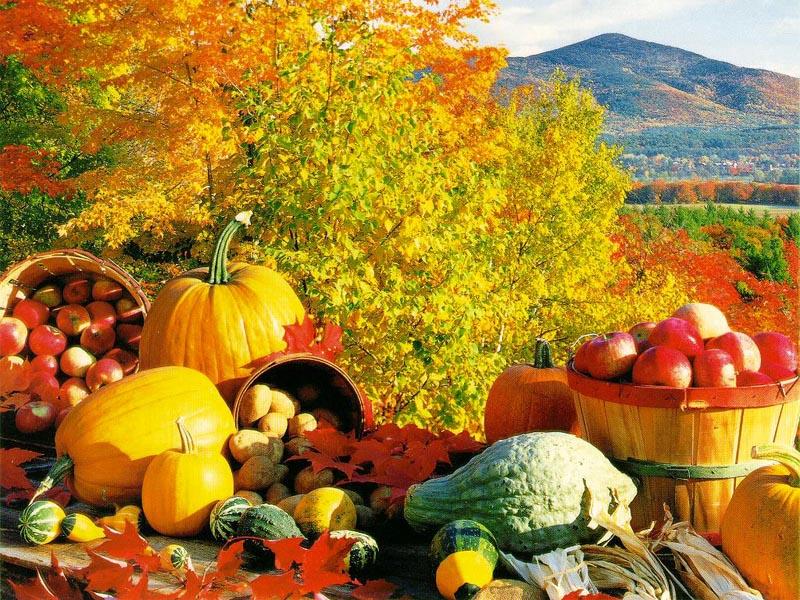Buying by season enables for a fresh diet that reflects the beneficial properties that nature provides each and every season.
In the United States, most consumers are provided with virtually unlimited access to the same produce throughout the year. Technological and chemical advances in production and harvesting of various plants – regardless of the plants natural seasonal growing time – help with this occurrence. By bending nature’s practices through non-seasonal growing, plants tend to be full of pesticides, genetically modifying, waxes, preservatives and other chemicals in order for them to survive/grow and appear fresh.
“One of the best ways to get seasonal produce is from the farmer’s market,” Librarian Laura Falli said. “Most of them are local and recently picked. It’s important to have variety in life and in diet because it’s beneficial to our health and the health of our environment. I know during the winter, citruses are in season and by nature helps to fight off colds of winter, an example of natures way of balancing and harmonizing everything. Eating by season affects culture since it says you can’t have what you want all the time and that’s where canning came from so people can still have a little of the out-of-season crops later on.”
Similar to the law of supply and demand, when certain plants are in season there are more in supply which drives down the cost. Therefore, buying produce seasonally saves the consumer money.
Seasonal eating also adjusts the diet to meet specific health challenges caused by the changes of the seasons. For example, after the winter season, there is generally an accumulation of heavier and warm foods in the body. Due to spring being the cleansing or “spring cleaning” season, the body wants to cleanse.
In Christina Luisa’s book “Eating Seasonally – One of Your Best Health Allies,” she offers advice.
“In traditional Chinese medicine (TCM), spring is associated with the liver – one of the body’s primary detoxification organs. Synergistically, spring is also the time when dandelion and other bitter greens are fresh and available; these bitter greens support the liver and its function of cleansing the blood.” (Luisa)
When food is sourced locally and seasonally, there is less carbon emissions into the atmosphere due to the reduction of distance (hundreds or even thousands of miles away) the produce or food has travel to reach the consumer. In the process of shipping, crops must be harvested before they are ripe, refrigerated, (maybe) applied chemicals and maybe irradiated so they do not spoil during transportation. The unripening of the plant and shipping process doesn’t allow for maximum quality, flavor and nutrition.
“Being a cook at PBK Stem and Stein in Pflugerville, I look for and use fresh and local foods because they bring the most taste and quality,” senior Gareth Deakes said. “But overall, it’s important to our health and environment that we don’t use harmful pesticides, preservatives and any other chemical for our food because in the end it’s hurting us and our world.”
Research proves eating seasonally is nutritionally beneficial.
Luisa cites a research study conducted in 1997 by the Ministry of Agriculture, Fisheries and Food in London, England, significant differences were found in the nutrient content of pasteurized milk in summer versus winter. Iodine was higher in the winter; beta-carotene was higher in the summer. The Ministry discovered that these differences in milk composition were primarily due to differences in the diets of the cows. With more salt-preserved foods in winter and more fresh plants in the summer, cows ended up producing nutritionally different milks during the two seasons. Similarly, researchers in Japan found three-fold differences in the vitamin C content of spinach harvested in summer versus winter.
“Buying produce by the season, like fresh berries, taste way better than the out-of-season ones,” paraprofessional Brittany Caporale said. “I think when harvested at the right time allows for maximum flavor. I noticed it’s a lot cheaper.”
Buying according to natural seasonal production enables a variety of plants to be consumed. This is also another beneficial aspect of buying seasonally because it varies the diet which allows for the seasons’ diversity of nutrients to be taken in. The ability to try and experiment with fresh seasonal plants and recipes are available in every season.
“Going to the farmer’s market and seeing the fresh picked produce of spring brings joy to me and makes me feel close to mother nature,” senior Rami Benchouia said. “Buying proper produce helps keep the artificiality of life farther away from me. Especially going to the actual farms to pick my own local, organic and real produce makes me feel exuberant.”
Seasonal produce/food can be found at farmers markets (get to know the farmer and their practices first to know where and how the food is produced), sometimes at grocery stores and/or at local farms. All around Austin and Central Texas are local farms that allow for others to come and pick their own produce ranging from strawberries, peaches, berries, tomatoes, pecans and any other seasonal fruits and vegetables.
Pick your own produce or visit local farms: www.pickyourown.org/TXharvestdates.htm
Local Austin Farmer Markets: http://www.sfcfarmersmarket.org/ and http://www.edibleaustin.com/content/farmers-markets-resources-109
Seasonal Guide: http://www.edibleaustin.com/content/resources-resourcesmain-84
(Seasonal crops and growing patterns are specific to each region)







